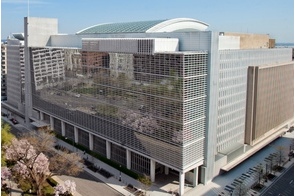Taking Nigeria's children off the streets

Summary
1.3 million children have been forced to flee their homes from conflicts in the north-eastern region of Nigeria.
It was once considered a rare occurrence. But the number of 'street children' is growing at an alarming rate. Referring to children living or working on the streets, UNICEF says the exact number of street children is unknown. However, some estimates have placed the figure as high as 100 million globally. With the increase in global population, the number is likely to increase.
According to Street Child, a United Kingdom-based charity, 1.3 million children have been forced to flee their homes from conflicts in the north-eastern region of Nigeria. The region, which is the epicentre of Boko Haram's almost decade-long insurgency, continues to be devastated, endangering the lives of millions of children, women and their families.
Children under 15 years of age account for 45 percent of Nigeria's population of 182 million people. The total number of out-of-school children in Nigeria remains at 10.5 million. According to the United Nations Children Fund, this represents the highest number of children in the world who cannot go to school. And 60 percent of those children are in northern Nigeria. Nothing can underscore more the overwhelming burden on the Nigerian educational sector.
As part of Access Bank's award-winning sustainability agenda, the Bank embarked on a strategic community outreach in February 2018 to help ameliorate the abysmal living conditions of children living and working on the streets in Ogun State, in south-western Nigeria. The outreach was organised last month to commemorate the International Day for Street Children (IDSC) which held on January 31, 2018 – a day that is observed every year to bring awareness to the street children who are vulnerable to all forms of exploitation, diseases and abuse. IDSC was first organised in 2011, led by the Consortium for Street Children (CSC), a global network that exists to give street children a voice, promote their rights and improve their lives.
Access Bank's outreach was organised in partnership with the Abeokuta-based Childhood Advancement Response and Empowerment (CARE) initiative, a non-governmental organisation (NGO). The programme for the outreach included some strategic activities, including a march to advocate for the relief of the plight of street children. It also involved advocacy training for civil society leaders on strategies to address child displacement on the streets.
Another aspect of the programme also involved awareness creation on how to protect the rights of children living and working on the streets. Access Bank and CARE also facilitated the distribution of information, education and communication materials as well as other basic reading and writing materials for children.
The programme of the IDSC 2018 outreach was successful in empowering over 100 children with educational resources to fight illiteracy, which is a major limitation that perpetuates poverty in societies. Acquisition of literacy and numeracy skills provide a solid foundation to children for further learning throughout their lives. Another outcome of the outreach was the awareness that was created on the epidemic of street children. About 100,000 individuals were reached on social media and other traditional media platforms.
Following the achievements from this year's campaign, Access Bank looks forward to expanding the scope of the outreach in the coming years. A number of activities are being planned to reiterate the Bank's commitment to ensuring the rights of children are not violated; and helping to build a more sustainable future in Nigeria, as well as the other frontier economies in Africa where Access Bank has operations.
Despite progress that was made under the Millennium Development Goals (MDGs), a 2016 UN report shows that 59 million children of primary school age and 65 million adolescents of lower secondary age were out of school in 2013. This is why Goal 4 of the 2030 Agenda for Sustainable Development – which replaced the defunct MDGs – aims to ensure inclusive and equitable access to quality education and lifelong learning opportunities for all.
Access Bank will continue to play its responsible leadership roles in fostering the Sustainable Development Goals. The Bank will also continue to work with other stakeholders as part of its commitment to the collective actions needed to address the challenges facing vulnerable children on the streets.
Omobolanle Victor-Laniyan is Head of Sustainability at Access Bank Plc.
Related
-
Access Bank emerges 'Most Socially Responsible Company of the Year’
Access Bank also emerged the winner in four other award categories to dominate the list of honourees at the colourful event ...
-
Emerging Africa Infrastructure Fund attracts $100 million AfDB funding
EAIF business model targets several development outcomes including green and sustainable economic growth.
-
Opponents of World Bank-funded projects harassed, threatened
In Cambodia, India, Uganda and elsewhere, HRW reports that people have been harassed and arrested on trumped-up charges.
Sustainable Development Section Sponsor
Most Popular
- India’s sustainable eating habits offer hope for climate change mitigation
- Unpaid care work prevents 708m women from participating in labour market
- COP29: Multilateral development banks to boost climate finance
- Access Holdings and African art renaissance
- Africa Finance Corporation facilitates $200mn financing for BUA Group









